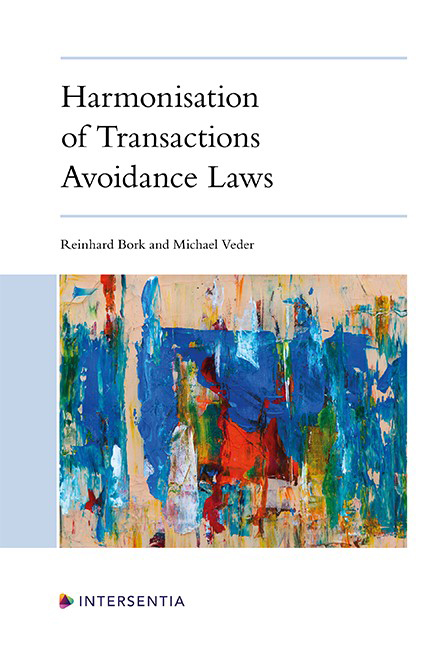Romania
Published online by Cambridge University Press: 26 May 2022
Summary
PART 1. DETAILS OF YOUR NATIONAL TRANSACTIONS AVOIDANCE LAW
I. SYSTEM
Question 1. Is your transactions avoidance law (for terminology cf. Introduction at C.) part of insolvency law or is it in parts or as a whole incorporated in other fields of law (e.g. general civil law, commercial law, company law)?
The provisions in the Romanian substantive law applicable to the avoidance of the transactions are to be found in the Civil Code (lex generalia), in Law (Act) no. 85/2014 on the prevention of insolvency proceedings and on the insolvency proceedings (lex specialia, applicable to commercial insolvencies) and in the Law (Act) no. 151/2015 on the insolvency proceedings applicable to natural persons (lex specialia, applicable to non-commercial, consumer insolvencies).
Government Emergency Ordinance no. 46/2013 on the insolvencies of selfgoverning territorial units (municipalities) is a lex specialia, too, but has been rarely applied. To my knowledge, only one such insolvency proceedings has been opened since this piece of legislation has entered into force.
Question 2. Are the rules on transactions avoidance law in your jurisdiction the same for entrepreneurs/legal entities and consumers/natural persons? If not, please explain the differences and take it into account when completing this questionnaire.
The rules on transactions avoidance law in Romania for entrepreneurs in insolvency (laid down in Law (Act) no. 85/2014), for self-governing territorial units (laid down in GEO no. 46/2013) and for consumers in insolvency (laid down in Law (Act) no. 151/2015) are rather similar.
Question 3. Are the rules on transactions avoidance law in your jurisdiction the same for liquidation and restructuring proceedings (if any)? If not, please explain the differences and take it into account when completing this questionnaire.
The rules on transactions avoidance law in Romania for both entrepreneurs in insolvency (laid down in Law (Act) no. 85/2014) for self-governing territorial units (laid down in GEO no. 46/2013) and consumers in insolvency (laid down in Law (Act) no. 151/2015) are the same for liquidation and restructuring proceedings.
Note for insolvent self-governing territorial units (laid down in GEO no. 46/2013): self-governing territorial units cannot be liquidated.
- Type
- Chapter
- Information
- Harmonisation of Transactions Avoidance Laws , pp. 1165 - 1208Publisher: IntersentiaPrint publication year: 2022



